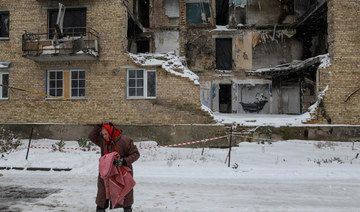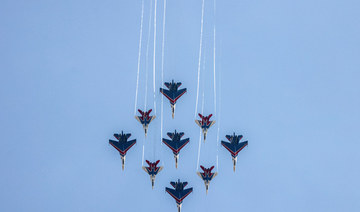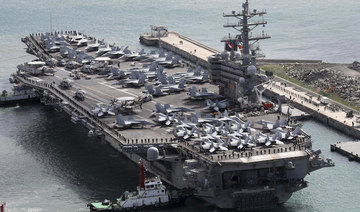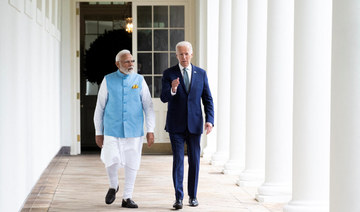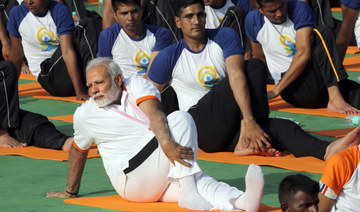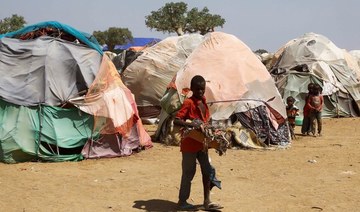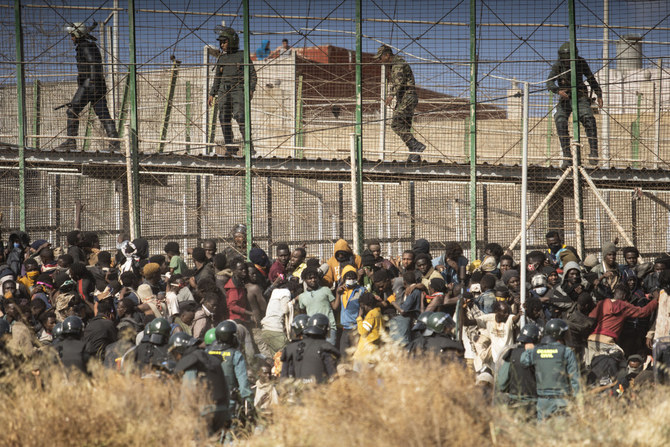WASHINGTON: The Pentagon said Tuesday that it overestimated the value of the weapons it has sent to Ukraine by $6.2 billion over the past two years — about double early estimates — resulting in a surplus that will be used for future security packages.
Pentagon spokeswoman Sabrina Singh said a detailed review of the accounting error found that the military services used replacement costs rather than the book value of equipment that was pulled from Pentagon stocks and sent to Ukraine. She said final calculations show there was an error of $3.6 billion in the current fiscal year and $2.6 billion in the 2022 fiscal year, which ended last Sept. 30.
As a result, the department now has additional money in its coffers to use to support Ukraine as it pursues its counteroffensive against Russia. And it come as the fiscal year is wrapping up and congressional funding was beginning to dwindle.
“It’s just going to go back into the pot of money that we have allocated” for the future Pentagon stock drawdowns,” said Singh.
The revelation comes as Ukraine moves ahead with the early stages its counteroffensive, in an effort to dislodge the Kremlin’s forces from territory they’ve occupied since a full-scale invasion in February 2022. The counteroffensive has come up against heavily mined terrain and reinforced defensive fortifications, according to Valerii Zaluzhnyi, the commander in chief of Ukraine’s armed forces.
Russia, meanwhile, has been bombarding the Kyiv region with dozens of Shahed exploding drones, in an assault that has exposed gaps in the country’s air protection after almost 16 months of war. Officials said Ukrainian air defenses downed 32 of 35 drones that were launched by Russia early Tuesday.
The Pentagon has repeatedly used presidential drawdown authority to pull weapons, ammunition and other equipment off the shelves, so that it can get to Ukraine far more quickly than going through a purchase process.
Based on previous estimates announced June 13, the US had committed more than $40 billion in security assistance to Ukraine since Russia invaded. Using the new calculation, the US has actually provided less than $34 billion in aid.
Officials have not been able to give exact totals for the amount of money that remains for the drawdowns or for the Ukraine Security Assistance Initiative, which provides longer-term funding to purchase weapons, including some of the larger air defense systems.
The US has approved four rounds of aid to Ukraine in response to Russia’s invasion, totaling about $113 billion, with some of that money going toward replenishment of US military equipment that was sent to the frontlines. Congress approved the latest round of aid in December, totaling roughly $45 billion for Ukraine and NATO allies. While the package was designed to last through the end of the fiscal year in September, much depends upon events on the ground, particularly as the new counteroffensive ramps up.
President Joe Biden and his senior national security leaders have repeatedly stated that the United States will help Ukraine “as long as it takes” to repel the Russian forces. Privately, administration officials have warned Ukrainian officials that there is a limit to the patience of a narrowly divided Congress — and American public — for the costs of a war with no clear end.
Members of Congress have repeatedly pressed Defense Department leaders on how closely the US is tracking its aid to Ukraine to ensure that it is not subject to fraud or ending up in the wrong hands. The Pentagon has said it has a “robust program” to track the aid as it crosses the border into Ukraine and to keep tabs on it once it is there, depending on the sensitivity of each weapons system.
Singh said the accounting mistake won’t affect the ongoing delivery of aid to Ukraine.
Pentagon accounting error provides extra $6.2 billion for Ukraine military aid
https://arab.news/8ubqc
Pentagon accounting error provides extra $6.2 billion for Ukraine military aid
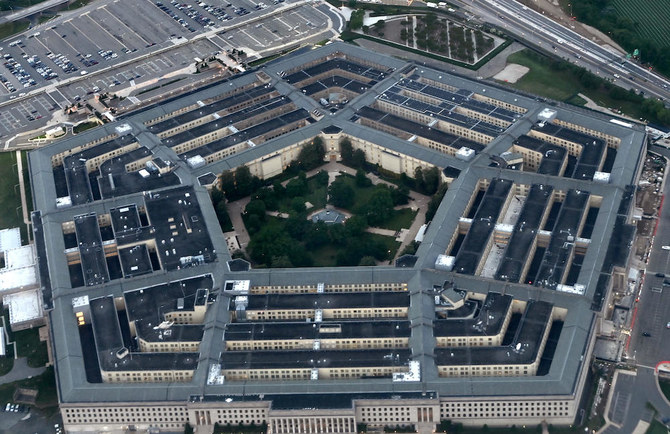
- Pentagon spokeswoman: It’s just going to go back into the pot of money that we have allocated for the future Pentagon stock drawdowns
- The Pentagon has repeatedly used presidential drawdown authority to pull weapons, ammunition and other equipment off the shelves





